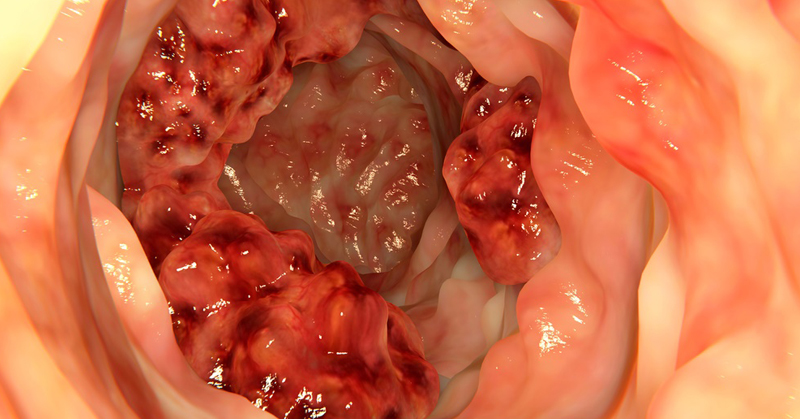Colon cancer or colorectal cancer starts in the large intestine or in the rectum. It is treatable when caught early, but it’s still the third most common type of cancer in men and women in the United States. Most colorectal cancers begin in cells that make and release mucus and other fluids, causing a tumor to form in the lining of the large intestine. Be aware of the risk factors, signs, and symptoms of this cancer. Know colon cancer warning signs to catch it in time.
Risk Factors for Colon Cancer
An early diagnosis can often lead to a complete cure, but there are several risk factors to be aware of. Risk factors include:
- Being overweight – being overweight or obese increases the risk of colorectal cancer in both men and women.
- Physical inactivity – increasing your level of physical activity lowers your risk. Regular to moderate exercise will help keep your heart and body healthy.
- Diet – Diets that are higher in fruits, vegetables and whole grains have been linked with a lower risk of colorectal cancer. Lowering your red and processed meat intake may also lower your risk.
- Alcohol – several studies have found a higher risk of colorectal cancer with increased alcohol intake, especially among men.
If you have a personal or family history of cancer, you are at a higher risk and should take preventative measures by keeping your body healthy.
7 Colon Cancer Warning Signs
Symptoms of an illness or disease are your body’s way of letting you know that something is wrong. Once you know the risk factors, also be aware of these 7 common colon cancer warning signs:
- Blood in your stool or bleeding from your rectum — Any amount or color of bleeding can be an early sign, so make sure you see a health care professional right away if you are experiencing this symptom.
- Unexplained weight loss.
- An ongoing bloated feeling, cramping or pain in your abdomen.
- Constant tiredness and weakness.
- A change in bowel habits that lasts for more than a few days, such as diarrhea, constipation or narrow stools.
- A feeling that doesn’t subside that you need to have a bowel movement, even after you’ve gone to the bathroom.
- Jaundice (a yellow or green coloring of the skin and the white part of the eye).
Other conditions such as infections, hemorrhoids or irritable bowel disease can cause similar symptoms, so be sure to visit a doctor if these symptoms arise. Awareness is the first step to prevention.


